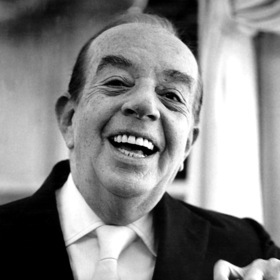Writer’s block is one of the greatest challenges faced by writers as they attempt to complete their work. It can be incredibly frustrating and discouraging when you get stuck with a story or article, and it can seem like you can never find a way out. But don’t despair! There are several ways to overcome writer’s block, and below we’ll discuss both what causes it and effective strategies for avoiding it.
Top Reasons for Writer's Block
There are numerous factors that can contribute to writer's block, from fear of failure or fear of
success to lack of motivation or inspiration. Here are some common reasons why writers
may suffer from writer's block:
1. Fear of failure — When you are afraid you won't be able to write something that is good
enough, your creativity may become inhibited, leading to writer's block.
2. Perfectionism — Setting too high standards for yourself makes it difficult for you to move
forward with your writing as you try to make every word perfect.
3. Lack of motivation — If you don't have any enthusiasm for the project at hand or feel
overwhelmed by the amount of work ahead of you, then this may cause a lack of motivation
which could result in writer's block.
4. Too many ideas — Having an abundance of ideas can actually be a hindrance when trying
to choose one idea and run with it, resulting in a feeling of paralysis which leads to writer's
block.
5. Stress — High levels of stress can lead to an inability to concentrate on your writing task at
hand, leading to difficulties creating new content or continuing with existing material due to
distractions or general fatigue associated with stress-related conditions such as anxiety or
depression.
6. Lack of confidence — A lack in self-belief and trust in one's abilities may lead the individual
towards procrastination or avoidance because they feel like they won't be able to produce
anything worthwhile anyway, so why bother trying?
How Popular Writers Overcome Their Blocks
Most popular writers have gone through periods where they have experienced blocks in their
writing process, but ultimately have found creative ways around these issues that have
allowed them to continue on their journey towards success in the literary world. Here are
some strategies that writers often implement when experiencing blocks:
1. Take regular breaks — Taking short breaks away from the page will help your mind relax
so that when you come back refreshed and energized, new ideas will arise more easily than
if you were fixated on your work without taking any respite from it whatsoever; this also gives
your creativity time to regenerate itself after a period of intense focus on the same task
without interruption.
2. Talk about your project — Explaining what it is exactly that you're working on and
discussing it with others could generate fresh perspectives and open up new possibilities
that weren't previously considered; this also helps establish accountability since other people
will now know about your project as well as give feedback on how certain aspects might be
improved upon when shared aloud rather than kept tucked away inside one's head where no
progress is made at all due its intangible nature (in other words: talk about what you’re
doing).
3. Set small achievable goals — Breaking down projects into manageable chunks helps
keep momentum going since each mini goal accomplished builds upon the next; plus smaller
milestones don't require as much cognitive energy overall so tasks become more achievable
over time compared larger objectives which tend to be overwhelming right off the bat and
thus decrease productivity overall due its intimidating nature (i..e break everything up into
little bits).
4. Read inspiring works— Reading pieces written by authors whose styles inspire us not
only allows us access into other points-of-view but also encourages us along our own path;
maybe even picking out certain words/phrases from these works helps spark our own
creative juices again since we're essentially learning through osmosis (without necessarily
realizing it) how different authors write effectively within their genre(s).
By understanding what causes writer's block and implementing different strategies for
overcoming them such as those listed above, writers can remain productive despite life
getting in the way occasionally during moments where inspiration temporarily disappears yet
continues flowing once again soon thereafter if proactive measures are taken beforehand –
such perseverance reaps great rewards over time!







“It is the golden age of a screenwriter. In this era, if a script writer, has the content, potential and patience to sit and write, he will be rewarded”